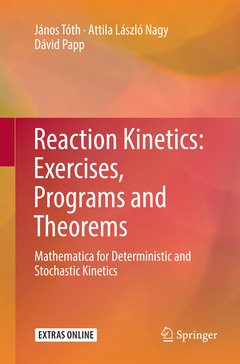János Tóth graduated from mathematics at Eötvös Loránd University and started to work for the Institute of Medical Chemistry. His main interest is in applied mathematics (differential equations and stochastic processes) in chemistry, chemical engineering, biochemistry, pharmacology and combustion. He is best known for his work on the inverse problem, on the stochastic model of the Michaelis-Menten reaction, and on lumping. Presently an honorary professor of the Budapest University of Technology and Economics, he was a visiting researcher at Princeton University, Pierre et Marie Curie Université, INRA, INERIS. He has published over 100 papers and four books. He has designed and taught subjects in mathematical chemistry. In 2017 he received the MaCKiE Lifetime Achievement Award.
Attila László Nagy graduated with highest honors from Budapest University of Technology and Economics as applied mathematician. He received his MSc under the guidance of János Tóth in 2011 by defending his thesis on stochastic parameter estimation methods. Since then he has been working both in the field of interacting particle systems and mathematical chemistry, and is now a PhD candidate. So far five publications of his have appeared in various journals including the Annals of Probability and the Journal of Mathematical Chemistry. Over the years he has taught several mathematics-related subjects mainly for engineering students at the undergraduate level. Recently, he has been working in the industry, currently as a business analyst.
Dávid Papp received his PhD from Rutgers University in 2011. Following postdoctoral researcher positions at Northwestern University and Massachusetts General Hospital, he is now an Assistant Professor of Mathematics at North Carolina State University. His research interests are in mathematical optimization and its applications in medicine, engineering, and statistics. He has written 30 public



